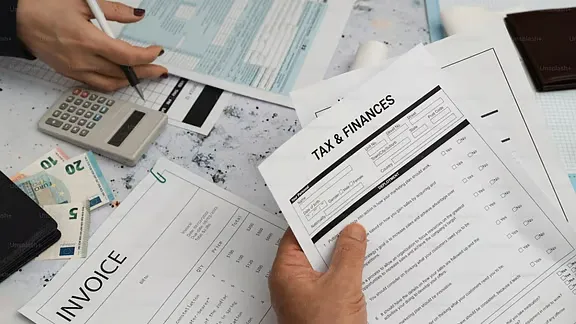The season for filing Income Tax Returns (ITR) has begun. Especially after the employers have issued Form 16, salaried taxpayers have also started filing returns. However, this time the deadline for filing income tax returns is 15 September.
But, experts say that taxpayers should not use the last date to file returns. While filing returns, you should not try to hide any kind of income.
Income should be based on high value transactions
Experts say that the Income Tax Department keeps track of every financial transaction of taxpayers. It especially keeps an eye on high value transactions. This means that if a person makes a high value transaction, but shows a very low income in the income tax return, then it is certain that he will come under the scrutiny of the Income Tax Department. The purpose of tracking high value transactions is to curb cases of tax evasion.
There is a special eye on the data of deposits in the bank
The Income Tax Department keeps an eye on high value transactions of taxpayers with the help of data received from banks and financial institutions. Vivek Jalan, partner, Tax Connect Advisory Services LLP, said that as per the rules, banks and other financial institutions are required to give information about many types of transactions to the Income Tax Department. For example, if a person deposits more than Rs 10 lakh in savings accounts in a financial year, then the bank has to give this information to the Income Tax Department.
The income tax department becomes cautious even if you withdraw more money
If a person withdraws or deposits more than Rs 50 lakh from the current account, the bank will have to give its information to the Income Tax Department. If a person pays a credit card bill of Rs 10 lakh (excluding cash) in a financial year, then the bank issuing the credit card will give its information to the Income Tax Department. If Rs 2 lakh comes into your account from the sale of goods or services, then the department will get its information.
These are the biggest weapons of the Income Tax Department
It is important for you to understand that the Income Tax Department does not track individual transactions of taxpayers. Instead, the department uses Annual Information Statement (AIS) and Form 26AS. Both these documents contain every transaction of taxpayers, big or small. For example, if you have bought or sold shares, then its information will be there in it. If you have traded in the stock markets, then its information will also be there in it.
Most Read Articles:-
- New GST Rule: From July 1, the time limit for filing GST returns will now be 3 years
- PAN Card Rules 2025: Big update: Your PAN will be closed after December 31, check new update here
- Railway Waiting Ticket Rule: Now the railway has made a big change in the rules of waiting ticket
- Heavy Rain Alert: There will be heavy rain in Delhi-NCR on 23, 24 and 25 June, issued an alert
- Air India has started a compensation of Rs 25 lakh, accident victims’ families will get support
